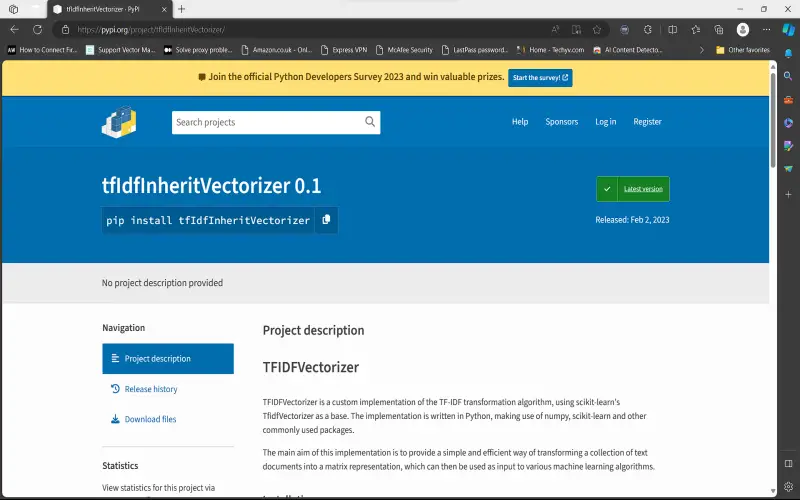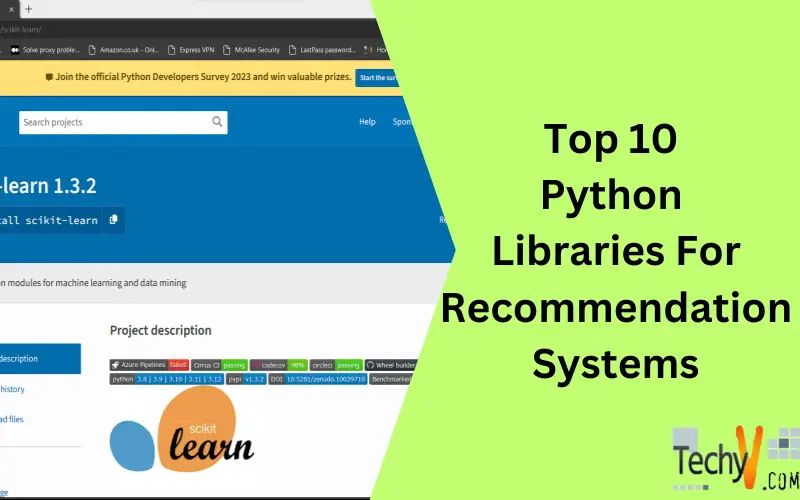Several top video streaming companies such as Netflix, Amazon Prime, and Hotstar commonly use recommendation systems every time. Every expectation of you including your online shopping, watching a movie or a web series/show, YouTube ads, website ads on the internet, product suggestions, search engines, etc. all are some type of recommendation system molding and analyzing our behavior on the internet. These systems create and understand user-specific pattern as we navigate through website or content on the internet and knows what the potential service which can benefit us. Here in this article, you will explore the list of top 10 Python libraries which you can use to create your own recommendations system which you can use by integrating it into your application or just try it for fun.
1. Recmtrics
Recmetrics is yet one of the most basic recommendation system libraries for Python. Recmetrics offers simple collaborative filtering algorithms to get started building recommender systems. It has an easy-to-use API that lets you quickly compute similarities between users and items. You can use Recmetrics to build and evaluate basic recommender systems focused on explicit feedback scenarios. It supports common collaborative filtering models like user-user, item-item, and matrix factorization. Overall, Recmetrics is a focused Python library to get started with building collaborative filtering-based recommendation systems.
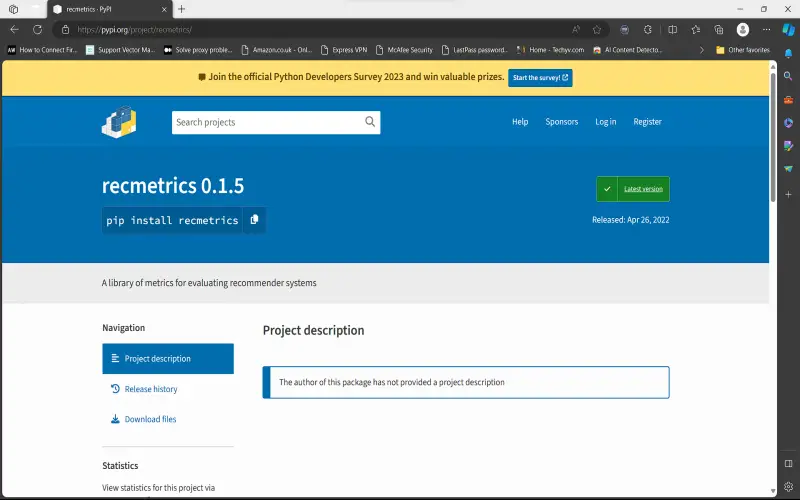
2. Surprise
Surprise is a flexible and versatile library for building different types of recommender systems. It provides implementations of algorithms for both explicit and implicit feedback problems. For explicit rating-based scenarios, it supports matrix factorization, neighborhood-based, and KNN techniques. Surprise also includes singular value decomposition (SVD) algorithms which decompose the user-item interactions matrix into latent factors to uncover hidden structures. The library provides convenient options to sample train-test splits for model evaluation and parameter tuning. Overall, Surprise is one of the most popular and robust Python libraries for building recommendation systems.
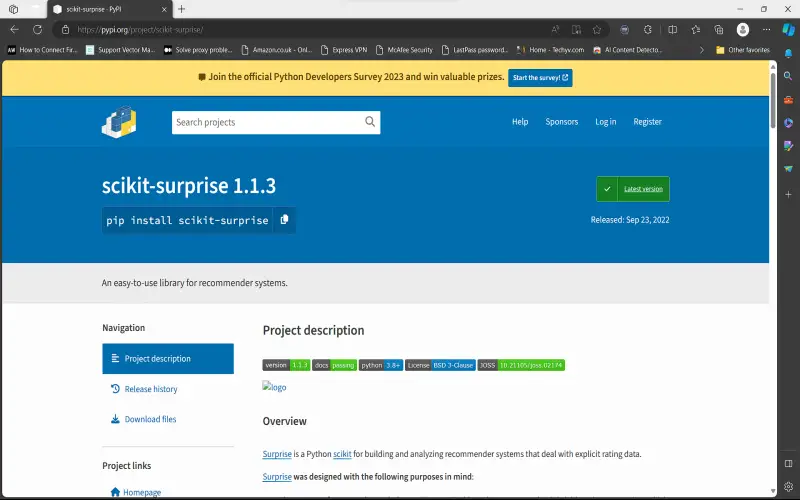
3. DeepCTR
DeepCTR is a library specifically focused on leveraging deep learning techniques for building recommendation systems. It is built on top of TensorFlow and PyTorch frameworks. The library focuses both on feature engineering and deep learning models tailored for recommendations. Feature engineering provides options to encode various types of input variables including target encoding, weight of evidence encoding, cross features, etc. For models, DeepCTR implements many state-of-the-art deep learning recommendation models like xDeepFM, DIN, DIEN, etc. With DeepCTR, you can effectively utilize deep learning techniques to boost your recommendation system performance.
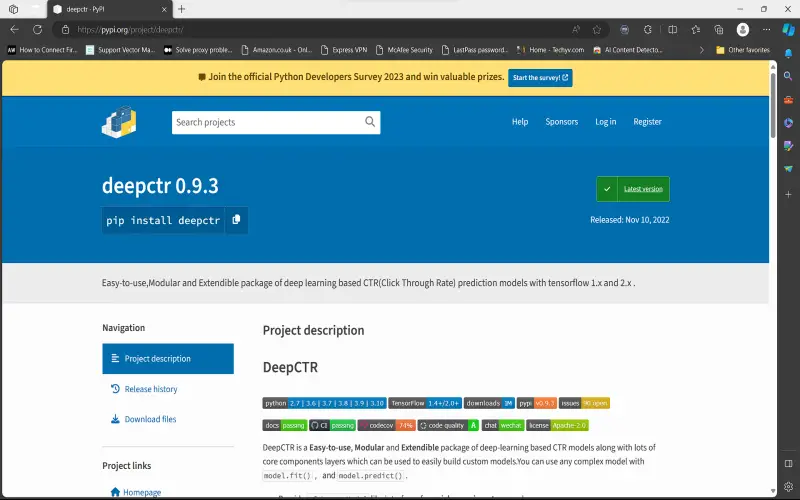
4. OpenRec
OpenRec is a Python library concentrated on enabling deep learning-based recommendation systems. It is built using the TensorFlow framework and can leverage GPUs for acceleration. OpenRec provides implementations for many deep-learning recommendation models like NeuMF, ConvNCF, Caser, etc. It also includes utilities like evaluation metrics and data loaders tailored for recommendations. You can use OpenRec to build customized deep-learning models for your specific recommendation problem scenario and data.
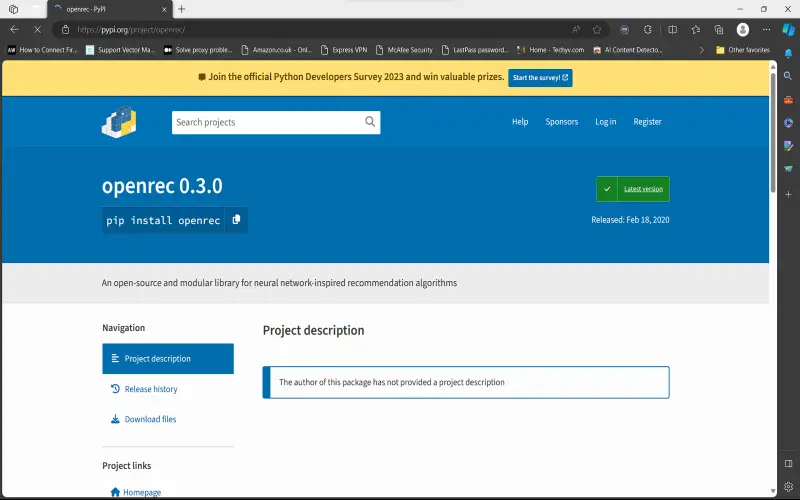
5. Scikit-Learn
Scikit-learn is the most popular general-purpose Python library for machine learning. It also provides some standard and basic algorithms that can be used for building recommendation systems. Scikit-learn has a matrix factorization model for collaborative filtering-based recommendations. This technique decomposes the user-item interactions matrix into latent factors that can uncover hidden structures. You can use Scikit-learn’s SVD algorithm for the matrix factorization. Scikit-learn also provides a user-user neighborhood-based approach with its NearestNeighbors class that can find similar users or items for making recommendations. Overall, Scikit-learn mainly provides baseline recommendation system approaches.
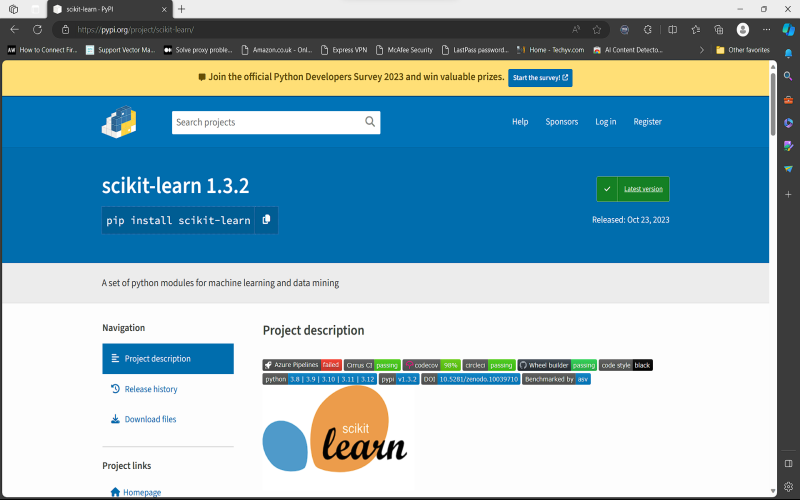
6. TensorFlow
TensorFlow is a highly flexible and versatile open-source library focused on deep learning. Within TensorFlow, you can build fully customized deep-learning models tailored to your specific recommendation problem. This includes implementing various matrix factorization models, autoencoders, graph neural networks, etc. from scratch. TensorFlow provides lower-level utilities like embeddings, optimizers, and neural network layers that you can leverage to build your recommender models. TensorFlow enables full control and customization for your deep learning recommendation system.
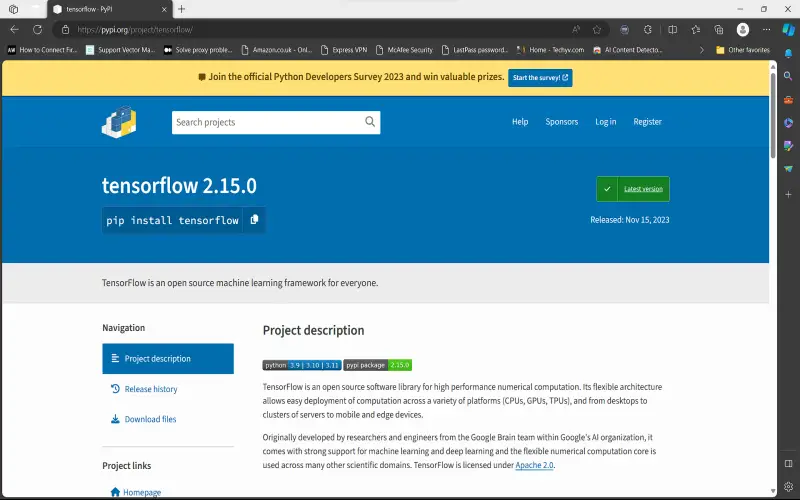
7. PyTorch
PyTorch is another powerful deep-learning library like TensorFlow. Within PyTorch, you can build fully customized neural network architectures for recommendation systems. This includes matrix factorization models, autoencoders, attention networks, graph neural networks, etc. PyTorch provides core building blocks like embeddings, neural network layers, loss functions, and optimizers that you can utilize to implement your deep recommender models. PyTorch enables complete flexibility and control over your deep learning recommendation system implementation.
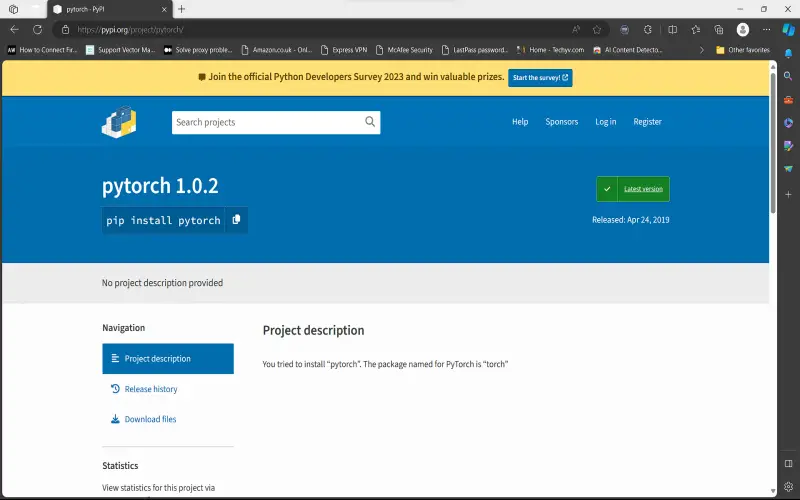
8. FastFM
fast FM is a Python library specifically focused on enabling fast experimentation with different factorization machine models commonly used in recommender systems. It provides efficient implementations of algorithms like matrix factorization, SVD++, NSVD, etc. These are latent factor models that decompose the user-item interactions into lower-dimensional representations. fast FM also includes options to customize loss functions and optimizations for implicit feedback scenarios. With fast FM, you can rapidly prototype and evaluate different factorization-based recommender models on your data.
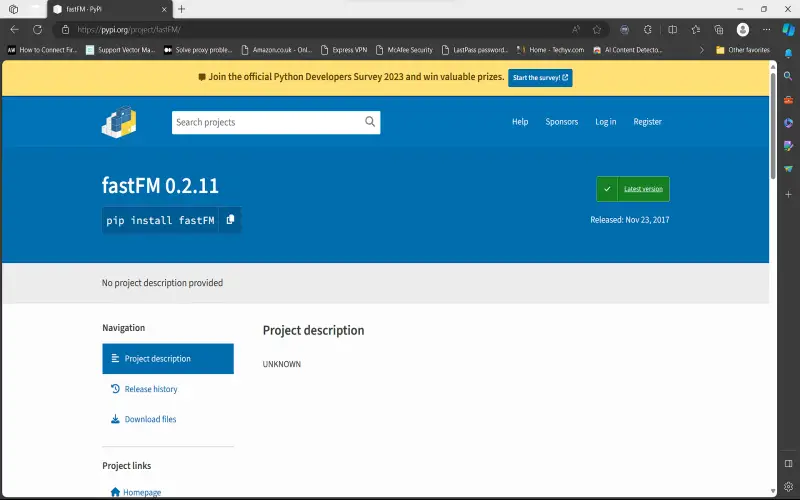
9. LightFM
LightFM is a Python library optimized for building large-scale recommender systems based on implicit user feedback. It focuses on efficient implementations of ranking loss functions like Bayesian Personalized Ranking (BPR), Weighted Approximate-Rank Pairwise (WARP), logistic loss, etc. that are effective for implicit feedback problems. LightFM also provides capabilities to incorporate hybrid recommendation models and hierarchical relationships in the data. The library is designed to enable quick training and evaluation of different recommendation models on large implicit feedback datasets.
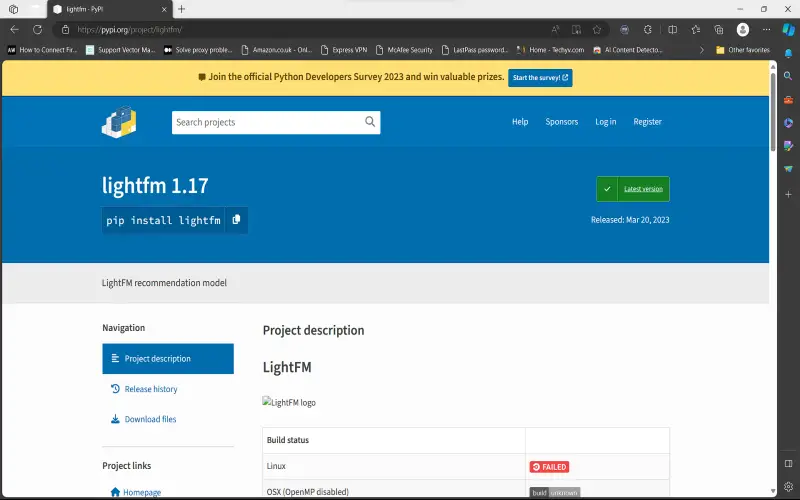
10. TfidfVectorizer
tfidfVectorizer is a utility for converting textual data like documents into numerical feature representations that can be used for training machine learning models. It works by building a vocabulary of all unique words in the texts and then encoding each document into a vector based on weighted word counts. tfidfVectorizer is provided within the popular sci-kit-learn library in Python. It transforms raw text data into a matrix where each row represents a document and columns are word counts from the vocabulary. This numerical encoding of text can then be fed as input features into recommendation and other machine learning models.
